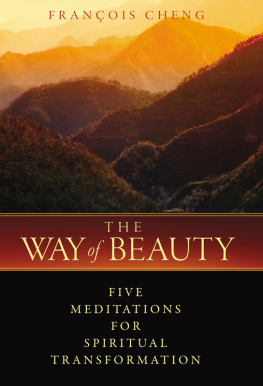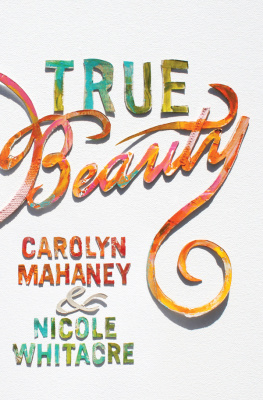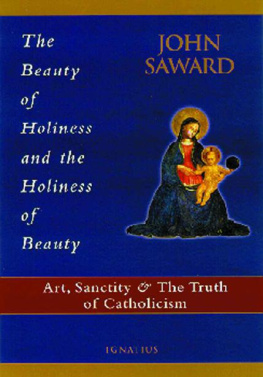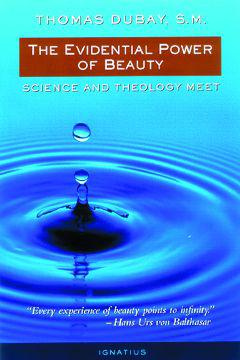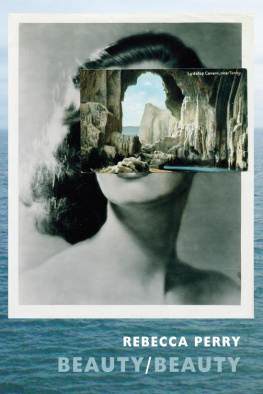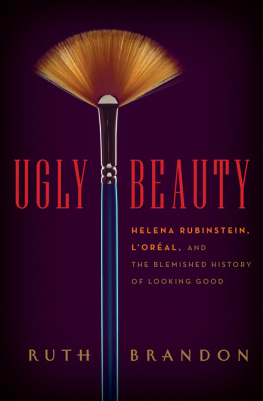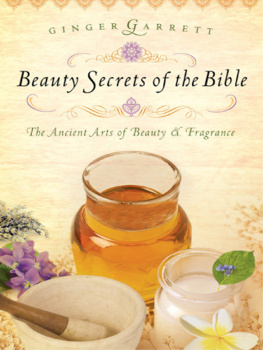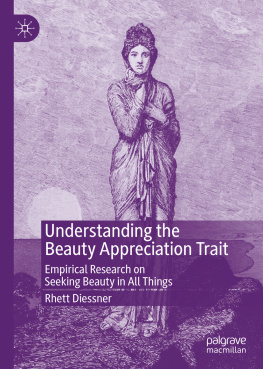
CONTENTS
INTRODUCTION
F EW BOOKS COME INTO being the way that this one has. The following pages are the fruit of a singular history, a history of encounters. Of course, they also have their prehistory, which is rooted in a life entirely devoted to writing, to the transmission of a thousand-year-old artistic tradition, to the dialogue between Eastern and Western thought. But when Franois Cheng was on the point of committing the essence of his research and reflections to a small amount of space, as had been his desire for many years, he found himself at a loss.
What he had to say, in the end, went beyond the framework of erudition alone, involved his own personal development at the deepest levels, and could not be summarized in a treatise, which may have been useful, certainly, but not productive. Why speak of beauty if not to attempt to restore man to his best self, and especially to risk speech that can transform him? It was then as if, at the heart of Franois Cheng, the poet challenged the writer and the scholar; he showed them the indecency of scholarly discourse on a subject where nothing less than human salvation is at stake. He charged them not to evoke the word beauty without an acute awareness of the worlds barbarity. He proclaimed to them that, faced with the almost universal reign of cynicism, aesthetics can only achieve its true depths by letting itself be subverted by ethics.
Thus it was necessary to return to the essential, that is, to the crucial reality of the between, to the relationship that unites beings, to what arises between the living, made up of the unexpected and unhoped-for, of which the poet had already spoken in his introduction to the Livre du Vide mdian. And thus arose the idea of taking a detour in the writing process, through actual encounters with real peopleindividuals capable of discernment. Convinced that true beauty unfolds through intersection and interpenetration, Franois Cheng wanted to appeal to people, before whom Or rather, of sharing the experience of that genesis, so great was the poets concern with participating in a relationship of creative exchange.
These five meditations thus bear the mark of oral tradition and they must be read accordingly. They often proceed by means of a gradual deepening, taking the form of spiraling thought in which someinevitablerepetitions are in fact refreshed by the poets and interlocuters exchanges. Each participant in these encounters experienced something unusual in these moments of intense presence: a man was entirely devoting himself, with humility, to evoking an apparently useless reality, neglected, even ridiculed, by our society. But at the heart of that precious fragility, between beings, something unique occurred that each person, in a flash, perceived as fundamental. Born of sharing, these meditations are offered here to be shared with a greater number, so that the spark of beauty they lit can live on.
JEAN MOUTAPPA, DIRECTOR OF THE SPIRITUALITY
DIVISION AT DITIONS ALBIN MICHEL
FIRST MEDITATION
I N THESE TIMES OF universal suffering, random violence, and natural and ecological disasters, to speak of beauty could seem incongruous, improper, even provocativealmost scandalous. But that is precisely why we can see that beauty, as evils opposite, really is situated at the other extreme of the reality we must face. I am convinced that it is our urgent and ongoing task to take a hard look at these two mysteries, which constitute the two poles of the living universe: at one end, evil; at the other, beauty.
We know what evil is, especially the evil that men inflict upon their fellows. Because of their intelligence and their freedom, when men descend into hatred and cruelty, they can sink to bottomless depths, which not even the most ferocious animal manages to do. Therein lies a mystery that haunts our consciousness, creating a wound that seems never to heal.
We also know what beauty is. Nevertheless, simply reflecting on it is enough to fill us with wonder: the universe is not obliged to be beautiful, and yet it is beautiful. In light of this observation, the beauty of the world, despite all the calamities, also appears to us as an enigma.
What does the existence of beauty mean for our own existence? And in the face of evil, what does Dostoyevskys claim, Beauty will save the world, mean? Evil and beauty: those are the two challenges we must accept. Nor can the fact escape us that evil and beauty are not just polar opposites; sometimes they are intertwined. Because it is only at the very end of its axis that beauty cannot be turned by evil into an instrument of deceit, domination, or death. When no longer founded on goodness, is beauty still beautiful? Wouldnt true beauty itself be a good? Intuitively, we know that to distinguish true beauty from false is part of our task. What is at stake is nothing less than the truth of human destiny, a destiny that implicates the fundamental facts of our freedom.
Perhaps it is worthwhile for me to pause here to offer my own personal reason for wanting to address the question of beauty and not ignore the question of evil. It is because very early on, when I was still a child, I was literally floored by these two extreme phenomena. Beauty came first.

I am originally from the Jiangxi Province where Lu Mountain is located; my parents took us to the mountain to stay each summer. Forming part of a mountain chain, Lu Mountain rises to a height of more than two thousand meters, towering over the Yangtze River on one side and Boyang Lake on the other.
Because of its exceptional setting, it is considered one of the most beautiful spots in China. Thus, for some fifteen centuries, it has been beset by hermits, monks, poets, and painters. Discovered by Westerners, Protestant missionaries in particular, toward the end of the nineteenth century it became their vacation place. They congregated around a central hill, dotting it with chalets and cottages. Despite ancient ruins and modern dwellings, Lu Mountain continues to exert its power to fascinate. The surrounding mountains retain their original beauty, a beauty that tradition characterizes as mysterious to the point that the Chinese expression, the beauty of Lu Mountain means an endless mystery.
I am not going to describe that beauty at great lengths. Let me say briefly that it stems from its exceptional setting, as I just mentioned, which offers ever-new perspectives and an infinite play of light. It also stems from the presence of mist and clouds that in turn hide and reveal the mountain face; of fantastic rocks and dense, varied vegetation; of waterfalls and cascades that fill the ear with an uninterrupted music over the course of days and seasons. On summer nights inflamed by fireflies, between the river and the Milky Way, the mountain exhales its scents derived from all the essences; drunk, the aroused beasts give themselves over to the moonlight, the snakes unfurl their satin, the frogs strew their pearls, between two cries, the birds launch jet black arrows....
But my purpose is not descriptive. I wish simply to say that through Lu Mountain, Nature, in all its formidable presence, revealed itself to the child of six or seven that I was then, as an inexhaustible harbor, and above all, as an irrepressible passion. It seemed to call me to participate in its adventure, and that appeal overwhelmed me, left me thunderstruck. Young as I was, I was not unaware that Nature also harbored much violence and cruelty. Nevertheless, how could I not hear the message that resounded within me: beauty exists!
Next page
